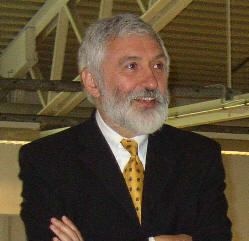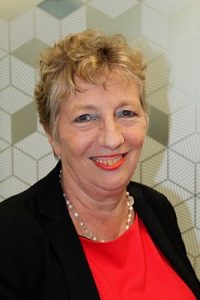Dr Jezdimir Knezevic
Founder & President of the MIRCE Akademy, Exeter, UK
He is a world class researcher, educator and entrepreneur. Over 400 publications disseminated world-wide through books, papers, monographs and reports are attributed to his name. In addition, he has delivered numerous technical presentations, key note addresses and speeches; has been congress, conference, symposium chairman, track leader, workshop presenter, round table moderator on many hundreds international events which took part in all six continents in over 40 countries. He has been elected as a Fellow, Member or Official of many leading Professional Societies and Institutions worldwide, and has been actively involved in editorial work with the world’s leading and prestigious referred journals and publishing houses. Dr Knezevic has received several international awards for his original contribution to research and education.
Encouraged by the excellent response from industry to his research and educational activities, in 1988 Dr Knezevic established a self-financing Centre for Management of Industrial Reliability, Cost and Effectiveness, MIRCE, at Exeter University, UK. Together with his colleagues, he has developed and delivered over 100 vocational courses and 12 international summer schools for practitioners from industry. Under his leadership, the Centre has attracted over 3000 professional engineers and managers and generated an income in excess of 3 million US dollars.
In 1991, Dr Knezevic developed and introduced the first Master of Science Degree in Logistics Engineering in the United Kingdom, at Exeter University. This was followed by the first Master Programme in Reliability and Maintainability Engineering, in 1996, and finally, in 1997 the first Master Programme in System Operational Effectiveness. Through these programmes he has directed and supervised over 150 postgraduate students, holding senior positions in leading global giants.
In 1999 Dr Knezevic formulated the concept of MIRCE Science, the scientific theory of the motion of functional systems through MIRCE Space, resulting from physical causes and human actions, which enable predictions of their in-service performance, at the design and planning stage. To fully focus on the further development, dissemination and application of MIRCE Science, he left Exeter University to establish the MIRCE Akademy, at the Woodbury Park, Exeter, UK. Under his leadership, the Akademy has educated thousands of professionals coming from Industry, Government and Military Organisations world-wide. Some of them have received internationally recognised Master or Doctoral Diplomas.
Dr Knezevic holds Bachelor, Master and Doctoral degree from Faculty of Mechanical Engineering, University of Belgrade, Yugoslavia. He shares life with Lynn, is passionate about motorsport, is challenged by rusty, but beautiful Lancia rally cars, and enjoys living in a XVI century built thatched cottage in tranquil village of Bickleigh, Devon, England.
Email: [email protected] phone; +44 (0) 1395 233 856
Title : Cloud Computing as a Mechanism of the Motion in MIRCE Science
According to Einstein “Everything that the human race has done and thought is concerned with the satisfaction of felt needs”. Thus, human needs for transporting, communicating, defending, entertaining and many other functions are satisfied by functionality of ships, airplanes, tractors, computers, radios and other functional systems. However, for the needs to be satisfied functional systems require continues provision of operation, maintenance and support resources, like personnel, material, energy, facilities, data and similar. A set of mutually related physical entities and human rules uniquely put together to do a functionability work constitutes functionable system in MIRCE Science. The philosophy of MIRCE Science is based on the premise that the purpose of the existence of any functionable system is to do functionability work. The work is done when the expected measurable function is performed through time. The expected work to be done by a given functionable system is predictable by MIRCE Functionability Equation. However, practical applications of MIRCE Science are possible only, when the physical mechanisms that generate the motion of systems through positive and negative states of MIRCE Space are understood. Scientific understanding of the mechanisms that generates occurrences of functionability events considered within MIRCE Mechanics is based on a physical scale raging from 10-10 of a metre to cover the atom driven phenomena to 1010 of a metre to embrace solar driven phenomena. These mechanisms, together with applied human rules, shape the pattern of the work done by the functionable system considered. Thus, the mechanism of motion addressed in this presentation is the impact that cloud computing could make on the trajectory of functionable systems through MIRCE Space directly and the business “bottom line” consequentially. Potencial impacts of cloud computing on the planning, distribution, safety and reliability of provisioning of operational, maintenance and support resources will be discuss in general and the impact on operational, maintenance and support in-service data information systems will be highlighted in particular.
Fiona Wilkinson
Bio:
Fiona Wilkinson, Deputy President of ICAEW, qualified as an ICAEW Chartered Accountant in 1980 and spent 11 years with Deloitte in London and Jersey but also working in Europe and Canada. Fiona then went on to set up her own practice, working as a technical consultant to firms advising them on auditing, financial reporting and practice assurance.
Fiona became President of the South West District Society in 2004/05 and turned it around by encouraging younger members, women and student representatives to become involved. During the last thirteen years she has served as chair of the Professional Standards Board, ICAEW Board director and chair of the Ethics Advisory Committee.
Fiona will serve as ICAEW President from June 2019 to June 2020.
Fiona is married with three grown-up children and likes to go to the theatre and ballet in her spare time.


